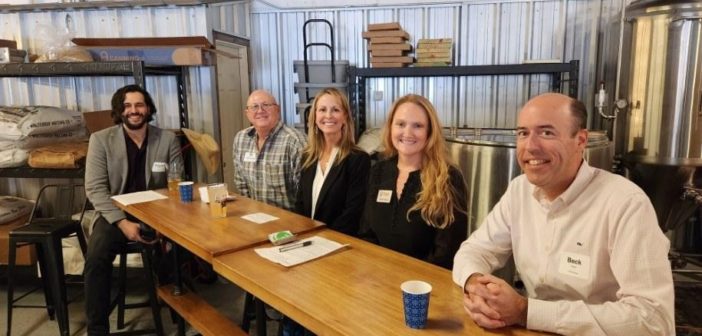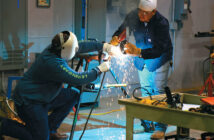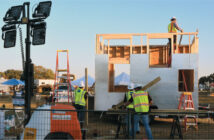 By: Keyan Zandy, CEO, Skiles Group
By: Keyan Zandy, CEO, Skiles Group
Earlier this fall, I had the pleasure of moderating a panel for Lean Construction Institute’s Dallas/Fort Worth Community of Practice on the historic labor shortage in our industry. Our goal was to identify what we’re facing, understand why it’s happening, and explore how we might change the trend and engage the next generation of construction workers. I’m grateful for our panel of industry experts who shared their time, thoughts, and ideas:
- JimBo Bunnell, Vice President of Dallas Construction, TDIndustries
- Beck Dando, North Texas Division Manager, Rolling Plains Construction (at the time of the referenced event, was with LCR Contractors)
- Terri Gaber, Professional Development Manager, Hill & Wilkinson
- Meloni Raney, President/CEO, TEXO, The Construction Association
This subject is significant to me because it goes back to people. One of the fundamental principles of Lean Construction is “respect for people,” and to be a more attractive industry, we must ensure that our efforts show respect for the people we work with. This can manifest in different ways. Some examples included offering work-life balance, showing genuine concern for mental health, and providing financial rewards that allow people to flourish and support their families, among other things.
To begin our conversation, we tackled why we are in this situation and how bad it is for many construction firms. For most of us, it’s a daily topic. The ripple effect means longer construction timelines and overtime for many projects. It’s not ideal for owners, firms, or workers—and, if we’re being honest, it’s not sustainable.
Talent has waned because we have seasoned craftspeople retiring while fewer are entering the industry than in decades past. Why this is in decline is complex and layered. Some theories included perceptions that construction work is hard work with little respect or pay and in a crude environment, the societal push to attend college vs. trade schools, and the growth of more attractive work-from-home and technology-oriented opportunities.
Next, the panel discussed what’s being done to mitigate the impact and change the trajectory and shared innovative ideas for recruiting and retention. On the jobsite, we’ve seen firms offering thoughtful touches such as picnic tables for lunches and female-only restrooms. We’ve also seen cleaner restrooms and more firms implementing Lean, embracing paperless environments, offering mental health moments, and celebrating milestones.
Unlike other industries, our field leaders cannot work from home. To counter this, we must look for ways to amplify flexibility, promote a healthy and vibrant culture, and support our workers—such as looking ahead at scheduling and dependencies to avoid overtime schedules or finding creative ways to mitigate our often-brutal Texas weather. We’re also seeing some work shift from jobsite to offsite with the rise of modular construction and prefabrication. This trend was viewed as a positive, with more predictable, controlled work environments, often leading to improved quality and reduced injuries.
On the education front, some firms are taking steps to ensure their employees understand 401k matches and health plans so they can more effectively use them to improve their lives. Other ideas included providing education- or professional development-related benefits and offering scholarships and relevant skills training. Similarly, more firms today hold regular performance reviews and offer career path planning at all levels.
It’s also incumbent on all of us, irrespective of our role, to be better leaders. There are multiple ways to work toward achieving this, like reading books, seeking training, networking with peers, listening to jobsite teams, implementing new ideas, and finding small but meaningful ways to improve the lives of the people we work with. It’s also on us to change the culture of the trailer environment by not tolerating (or exemplifying) poor behavior such as yelling, bullying, and emotional outbursts.
On the recruiting side, the panel discussed focused efforts to get into high schools and trade schools to serve as mentors. These efforts can help to show the next generation what’s possible for a career in construction and articulate what it can provide for you and your family. Just as important, we need female and minority representation in our firms, industry, and recruiting and mentoring efforts.
Finally, I’d be remiss not to mention a new competitor all industries face: the rise of the career influencer, YouTuber, and TikToker. Just ask any 8- to 10-year-old kid these days. Smart firms are looking to add technology to become more attractive to this tech-savvy generation. Firms are innovating, promoting, and incorporating technologies from BIM caves and simulators to smart boards, drones, and iPads. A few of them are even launching TikTok and YouTube channels—in fact, the hashtag #construction on TikTok has more than 34 billion views.
Our industry is impressive. Rarely do we take the time to celebrate our success and share just how incredible our work is. I know many of you feel the same pride in driving down a freeway, seeing a building, and thinking, “I helped build that.” I hope you’ll join me in sharing our value with those you meet in person and on social media with the TEXO tag #BuildTexasProud.
Keyan Zandy is CEO of Skiles Group, a national general contracting and Lean Construction management firm, and co-author of The Lean Builder. Skiles Group is a TEXO member.




